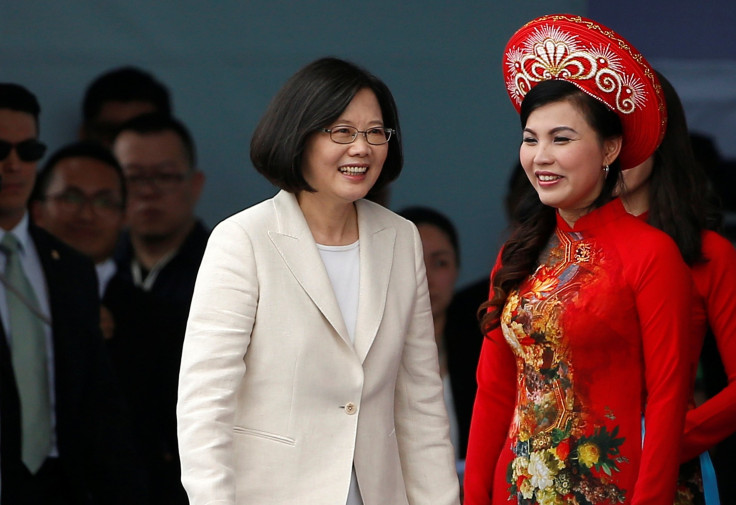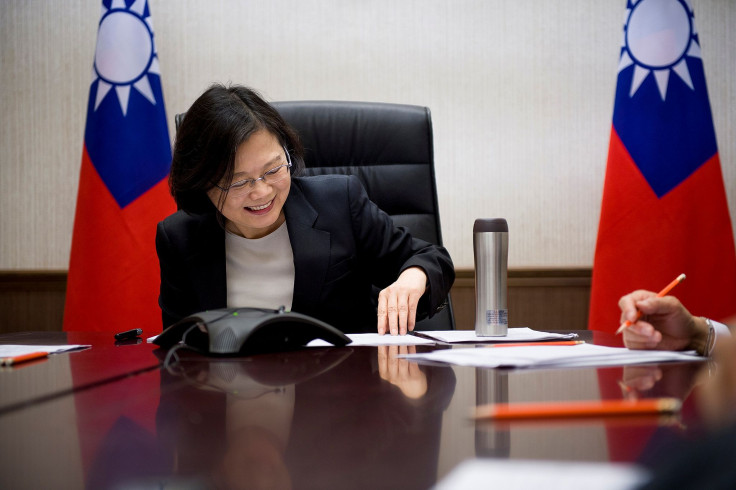Trump Taiwan Call: China Lodges Complaint With Washington Following President-Elect's Talk With Tsai Ing-wen

China’s foreign ministry officially lodged a complaint with the U.S. on Saturday following President-elect Donald Trump’s phone conversation with Taiwanese President Tsai Ing-wen. This is the first such contact with between the U.S. and Taiwan after former President Jimmy Carter adopted the “one China” policy in 1979.
China urged the U.S. to “to cautiously, properly handle Taiwan issue to avoid unnecessary disturbance to Sino-US relations,” the state-run Xinhua news agency reported. Chinese Foreign Minister Wang Yi dismissed the call earlier calling it a “petty trick” by Taiwan.
“It must be stated that, there is only one China on earth, Taiwan is an inalienable part of China’s territory and the PRC [People’s Republic of China] government is the only legitimate government that represents China. Those are all facts recognized by the international community,” Foreign ministry spokesman Geng Shuang reportedly said.
According to the U.S.’s “one China policy,” Washington recognizes Beijing as representing China. The U.S., however, retains informal ties with Taiwan and is its sole arms supplier. In fact, only a handful of countries recognize Taiwan’s government.

On Friday, Trump and Tsai spoke over the phone during which the two leaders noted the “close economic, political, and security ties” between the U.S. and Taiwan. Trump also congratulated Tsai on her landslide victory in the Jan. 2016 election.
Tsai’s Democratic Progressive Party favors independence from China and does not recognize the “one China” policy.
The White House assured China that the phone call does not alter U.S. policy on Taiwan. Trump’s team also clarified that the real estate mogul is “well aware” of U.S. foreign policy.
© Copyright IBTimes 2024. All rights reserved.












